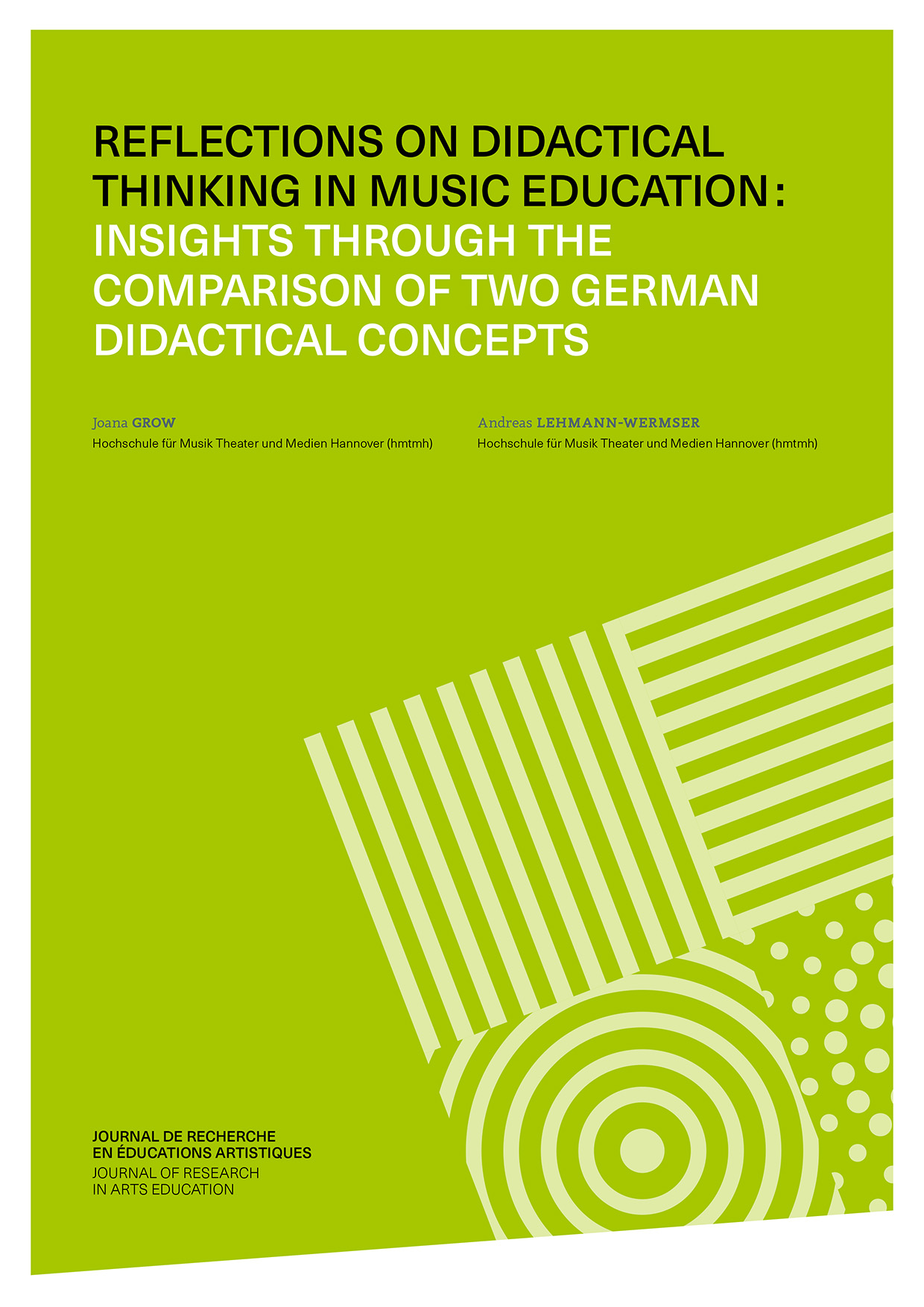Reflections on didactical thinking in music education: Insights through the comparison of two german didactical concepts
DOI:
https://doi.org/10.26034/vd.jrea.2023.3587Keywords:
concepts in music education, music education philosophy, didactics, methodsAbstract
The term “Didaktik” is very typical for German music education scholars. Nevertheless, different meanings of the concept “Didaktik” can be found in music education research. It can mean the “analysis of lessons” and be based on theories from Educational Psychology or it also can mean “theory and praxis of teaching and learning”. Since teaching exists in other countries without referring to this construct, we ask, “Why is Didaktik helpful?” We will discuss this topic by looking at two of the most prominent concepts of “Didaktik” currently being advocated in the domain of music education in Germany. We will present two fictitious music lessons that follow these didactic concepts in an idealised form. One lesson is based on the concept of “Produktionsdidaktik” which aims at musical aesthetic experiences (Rolle 1999; Wallbaum 2009, 2000). The other lesson follows the concept called “Aufbauender Musikunterricht” (AMU), which focuses especially on verifiable competence development. Both lessons have the same topic. The differences between the two lessons in terms of musical approaches, methodology or the role of the teacher are discussed. They make the effects of didactical thinking visible.

Downloads
Published
Issue
Section
Categories
License

This work is licensed under a Creative Commons Attribution 4.0 International License.
The CC-BY licence authorises the sharing and adaptation of the document provided that the work is credited, a link to the licence is included and it is indicated whether any modifications have been made.


